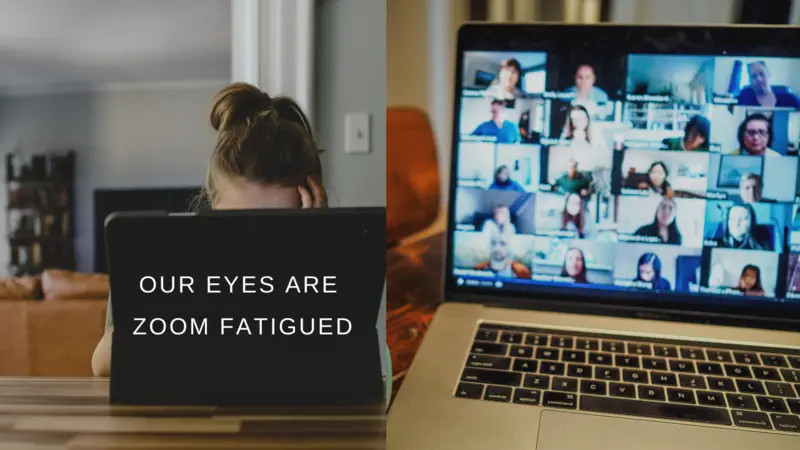

WELLthier Living and Aging

WELLthier Living and Aging
Mindful Engagement Online: Avoiding Virtual Exhaustion and Burnout
“Burnout is what happens when we ignore the soul whispering against an unhealthy job or relationship.” —Dina Glouberman, PhD, Psychotherapist and Author
Lately, I’ve noticed the way extensive Zoom calls have been zapping my energy and spirit, and I am experiencing an unhealthy relationship with my computer. So, when asked to write an article about virtual exhaustion, I realized I’m not the only one.
But how do you function in a pandemic without the internet?
It feels unnatural for a human being to sit in front of a screen and be “on” for hours.
Indeed, the psychological consequences of “Zoom fatigue” are so widespread, they are now being studied at Stanford University. This month, Professor Jeremy Bailenson, founding director of the Stanford Virtual Human Interaction Lab, published the first peer-reviewed article on the subject.
Bailenson’s study systematically deconstructs “Zoom fatigue” from a psychological standpoint and identifies four reasons why it happens, along with suggestions to help relieve the stress.
Four basic reasons for Zoom fatigue and exhaustion:
- Excessive amounts of close-up eye contact
- Seeing yourself during video chats
- Limited physical mobility
- Increase in cognitive load (trying to read and give gestures)
Bailenson’s suggested solutions for Zoom exhaustion and burnout:
- Reduce the face size of participants by shifting out of full screen mode and increase the space between yourself and the monitor,
- Use “hide self-view” button,
- Adjust your camera so you can pace or doodle in a virtual meeting and turn off video periodically,
- Take “audio only” breaks and turn the body away from screen occasionally so you aren’t bombarded by the gestures of others.
Our Eyes Are Zoom Fatigued
Focusing the eyes in one spot all day can affect our vision. Computer Vision Syndrome was explored by California optometrist, Jeffrey Anshel. He developed a way to relieve computer eye strain called the 20-20-20 rule published in Optometry Times. (This can also be a way to connect and recharge with nature.)
Every 20 minutes, refocus the eyes to something 20 feet away for 20 seconds.
Avoiding Burnout through Mindfulness: Invite Mindfulness Online
From a mindfulness perspective, we can cultivate an online practice to notice what is happening inside our minds, bodies, and hearts. It begins with recognizing our relationship to our computer and workspace. Is it difficult or comfortable; hostile or nurturing?”
“Set peace of mind as your highest goal and organize your life around it.” —Brian Tracy
The moment we notice that we’re lost in a mindless online vortex, we become present. This simple shift opens space to recognize the level of fatigue in the body and spirit.
Becoming aware of the effects of virtual exhaustion and taking steps to nurture ourselves can shift the relationship with technology and invite a renewed feeling of empowerment and ease.
In any moment, we can gently check in:
- Is it necessary to be online?
- What is my energy level?
- How does my body feel?
- What am I participating with?
Similar to the way mind chatter unconsciously controls mood and behavior, mindless use of technology can become habituated and addictive. Without noticing, we become drained, disconnected, and unaware of this unhealthy pattern.
Many of us feel like we’re at the mercy of our virtual lives, but with some nonjudgmental, open-hearted awareness, we can begin to shift our relationship with technology and experiment with new ways of nurturing mind, body, and spirit, opening space and relieving exhaustion.
“Awareness is the greatest agent for change.” —Eckhart Tolle
REFERENCES
Ruggiero, K. (n.d.) Mindful engagement online: Avoiding virtual exhaustion and burnout. The Graduate Institute. https://learn.edu/avoiding-virtual-exhaustion/


 By
By






